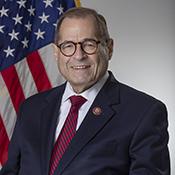0
0
0
NOPEC
12/15/2023, 3:57 PM
Summary of Bill HR 3081
Bill 118 hr 3081, also known as the No Oil Producing and Exporting Cartels Act (NOPEC), is a piece of legislation introduced in the US Congress. The purpose of this bill is to hold foreign oil cartels accountable for anti-competitive behavior and price fixing in the global oil market.
If passed, NOPEC would allow the US government to sue foreign oil-producing countries, such as OPEC (Organization of the Petroleum Exporting Countries), for violating US antitrust laws. This would give the US more leverage in regulating the oil market and potentially lower oil prices for American consumers.
Supporters of NOPEC argue that it would help promote fair competition in the oil industry and protect US consumers from price manipulation by foreign oil cartels. However, opponents of the bill are concerned that it could strain diplomatic relations with oil-producing countries and lead to retaliatory measures that could harm the US economy. Overall, the passage of NOPEC would represent a significant shift in US energy policy and could have far-reaching implications for the global oil market. It is currently being debated in Congress, and its fate remains uncertain.
If passed, NOPEC would allow the US government to sue foreign oil-producing countries, such as OPEC (Organization of the Petroleum Exporting Countries), for violating US antitrust laws. This would give the US more leverage in regulating the oil market and potentially lower oil prices for American consumers.
Supporters of NOPEC argue that it would help promote fair competition in the oil industry and protect US consumers from price manipulation by foreign oil cartels. However, opponents of the bill are concerned that it could strain diplomatic relations with oil-producing countries and lead to retaliatory measures that could harm the US economy. Overall, the passage of NOPEC would represent a significant shift in US energy policy and could have far-reaching implications for the global oil market. It is currently being debated in Congress, and its fate remains uncertain.
Congressional Summary of HR 3081
No Oil Producing and Exporting Cartels Act of 2023 or NOPEC
This bill prohibits a foreign state from engaging in collective action impacting the market, supply, price, or distribution of oil, natural gas, or any other petroleum product in the U.S. Specifically, a foreign state is prohibited from
- collective action that limits the production or distribution of such product,
- collective action to set or maintain the price of such product, or
- any other action that restrains trade of such product.
Specified defenses such as sovereign immunity (i.e., a foreign state's immunity from the jurisdiction of U.S. courts) and the act of state doctrine (i.e., the prohibition of a court invalidating an official act of a foreign sovereign performed within its own territory) shall not apply to a foreign state's violation of this bill.
Read the Full Bill
Current Status of Bill HR 3081
Bill HR 3081 is currently in the status of Bill Introduced since May 5, 2023. Bill HR 3081 was introduced during Congress 118 and was introduced to the House on May 5, 2023. Bill HR 3081's most recent activity was Referred to the House Committee on the Judiciary. as of May 5, 2023
Bipartisan Support of Bill HR 3081
Total Number of Sponsors
1Democrat Sponsors
0Republican Sponsors
1Unaffiliated Sponsors
0Total Number of Cosponsors
6Democrat Cosponsors
6Republican Cosponsors
0Unaffiliated Cosponsors
0Policy Area and Potential Impact of Bill HR 3081
Primary Policy Focus
Foreign Trade and International FinancePotential Impact Areas
- Competition and antitrust
- Energy prices
- Energy storage, supplies, demand
- Government liability
- Jurisdiction and venue
- Oil and gas
- Sovereignty, recognition, national governance and status
Alternate Title(s) of Bill HR 3081
NOPEC
NOPEC
No Oil Producing and Exporting Cartels Act of 2023
To amend the Sherman Act to make oil-producing and exporting cartels illegal.
Comments
Sponsors and Cosponsors of HR 3081
Latest Bills
Providing amounts for the expenses of the Committee on Ethics in the One Hundred Nineteenth Congress.
Bill HRES 131December 12, 2025
Providing for congressional disapproval under chapter 8 of title 5, United States Code, of the rule submitted by the Bureau of Land Management relating to "Central Yukon Record of Decision and Approved Resource Management Plan".
Bill HJRES 106December 12, 2025
Expressing the sense of the House of Representatives in condemning the Government of the People's Republic of China for its harassment and efforts to intimidate American citizens and other individuals on United States soil with the goal of suppressing speech and narratives the People's Republic of China finds unwelcome.
Bill HRES 130December 12, 2025
Providing for congressional disapproval under chapter 8 of title 5, United States Code, of the rule submitted by the Bureau of Land Management relating to "North Dakota Field Office Record of Decision and Approved Resource Management Plan".
Bill HJRES 105December 12, 2025
Providing for congressional disapproval under chapter 8 of title 5, United States Code, of the rule submitted by the Bureau of Land Management relating to "Miles City Field Office Record of Decision and Approved Resource Management Plan Amendment".
Bill HJRES 104December 12, 2025
Providing amounts for the expenses of the Select Committee on the Strategic Competition Between the United States and the Chinese Communist Party in the One Hundred Nineteenth Congress.
Bill HRES 104December 12, 2025
Critical Access for Veterans Care Act
Bill S 1868December 12, 2025
OATH Act of 2025
Bill S 1665December 12, 2025
A bill to extend the authority for modifications to the Second Division Memorial in the District of Columbia.
Bill S 1353December 12, 2025
Saving Our Veterans Lives Act of 2025
Bill S 926December 12, 2025
NOPEC
Bill S 678December 15, 2023



